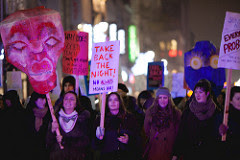Ask an Advocate: So there's a big myth that somehow being accused of sexual assault "ruins" a person's life. We can see for ourselves that is simply not true. A cursory look at the statistics from RAINN shows us that for every 1000 rapes, only 63 perpetrators will ever be arrested and only 13 will even get referred to prosecution. That's 1.3% of rapists who will have any mention of previous assaults in their legal file.
That's a really, really small number. Once you factor in that false reports are vanishingly rare - lower than false reports for grand theft auto - and you can see that being accused isn't likely to impact your day even if you're guilty.
Now for those 13 people referred to prosecution, depending on the severity of the crime, how straightforward prosecution would be, and what state you live in, the long-term effects can vary wildly. Some states require anyone convicted of any sex crime (including indecent exposure) to register as a sex offender. If you have a powerful lawyer (and/or you're white) that's less likely to come into play.
Seven of those 13 prosecuted cases will lead to felony convictions, which means you'll have to explain that in a lot of job interviews and some government work will be unavailable to you. However there are several places that help people with felony convictions to get jobs.
In the end, even with the seriousness of the consequences for those people who are reported, caught, and found guilty of sexual assault, the reality is that the consequences for survivors are much higher - both statistically and in emotional, physical, financial costs - than those for perpetrators.
If you're interested in helping people who have experienced sexual violence, check out our volunteer page!


